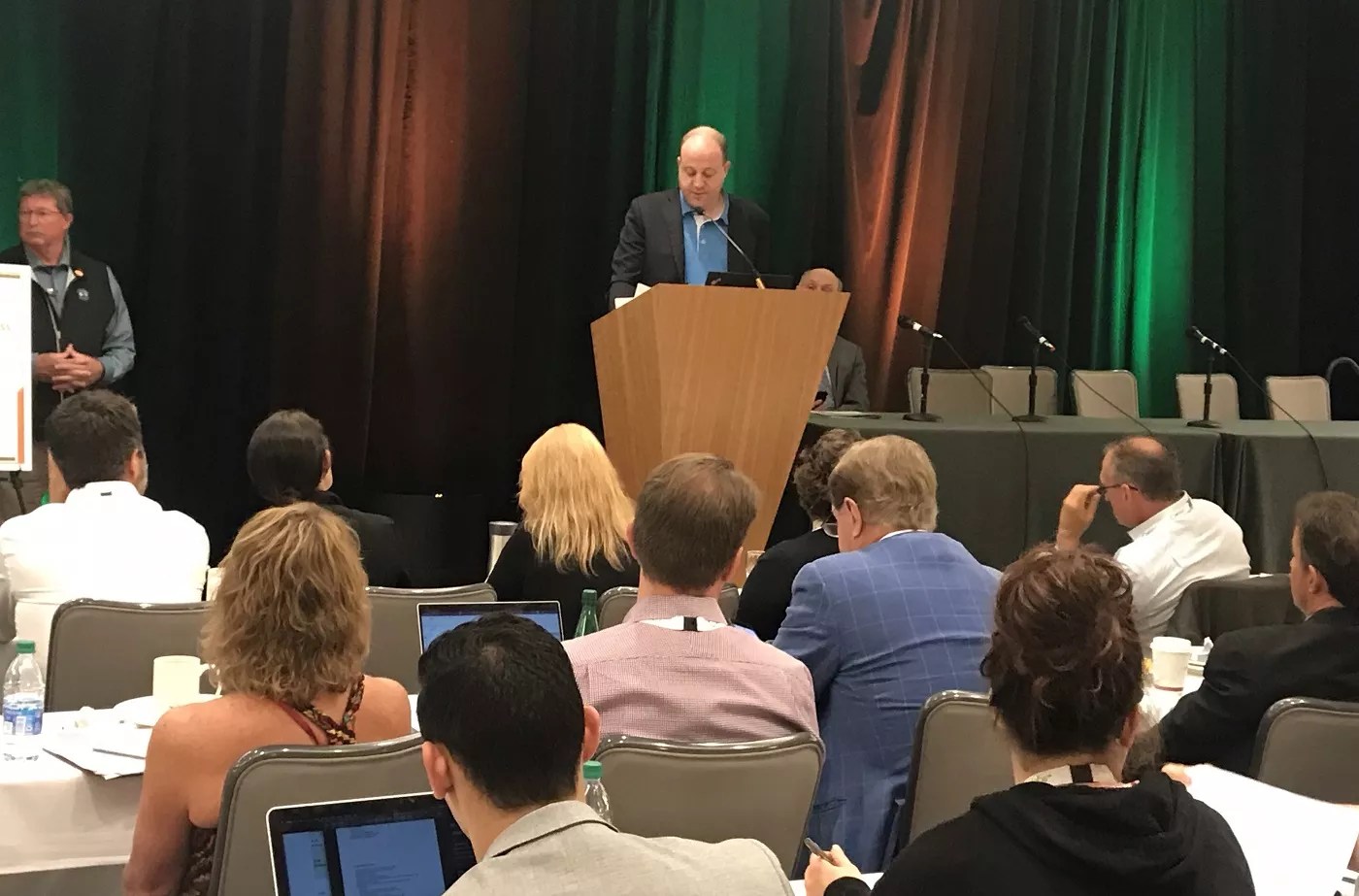
Thomas Mitchell

Audio By Carbonatix
Colorado has recently become a leader in the nation’s race toward industrial hemp dominance, and Governor Jared Polis wants to keep the state in pole position.
While speaking at a hemp and CBD supplement conference held by the American Herbal Products Association on August 16, Polis and his administration outlined their plan for making hemp an agricultural mainstay in Colorado as more states legalize the plant for farming.
“We know what’s worked to grow our agricultural sectors, and it’s no different for hemp,” Polis said. “It’s a big part of our rural economic initiative.”
Polis, who prints his business cards on hemp paper, says that Colorado exports hemp to over thirty states nationwide, and internationally to such countries as Canada, Chile and Uruguay. According to the governor, Colorado has over 62,000 acres allotted for hemp farming – a number he wants to increase by 20 percent next year by speeding up registration for farmers.
A former leader in acreage devoted to farming hemp, Colorado has been losing ground to states like Oregon and Montana as they quickly increase the bandwidth of their respective hemp programs. Despite more competition, however, Colorado has already attracted a relatively large number of hemp and CBD companies, thanks to state laws that legalize recreational marijuana as well as hemp-infused foods and cosmetics. On the federal level, CBD products intended for human ingestion are still considered illegal by the Food and Drug Administration.
To keep the state’s hemp industry thriving in the face of federal uncertainty, Colorado offers tax breaks and other incentives to hemp and CBD companies considering moving their headquarters here, according to Polis’s marijuana policy advisor, Ean Seeb. A former cannabis-industry consultant, Seeb believes that inviting more hemp and CBD processing, manufacturing and retail companies to this state will further spur hemp’s agricultural value. To ease the way, Seeb wants to see looser regulations.
“We’re really paying attention on how not to over-regulate this industry,” he said, adding that he wants the state to regulate hemp “more like corn” and “less like marijuana.” Seeb pointed to two bills passed by the state legislature recently that reduce the cost of hemp-infused food manufacturing licenses and align Colorado’s hemp program with forthcoming federal regulations from the United States Department of Agriculture.
At the conference, Polis and Seeb also went into detail regarding the Colorado Hemp Advancement and Management Plan (CHAMP), created by the Colorado Department of Agriculture after Polis became governor. The program has created a partnership between state, local and tribal agencies as well as hemp-industry stakeholders in law, farming, manufacturing, testing and other sectors. The group will submit a report in 2020 with recommendations on how to improve hemp regulations, the plant’s supply chain, sustainable and environmentally friendly business practices, social equity and more.
“We love acronyms in government work,” Polis said as he championed the CHAMP initiative. “You name it – we’re looking at all of those opportunities.”